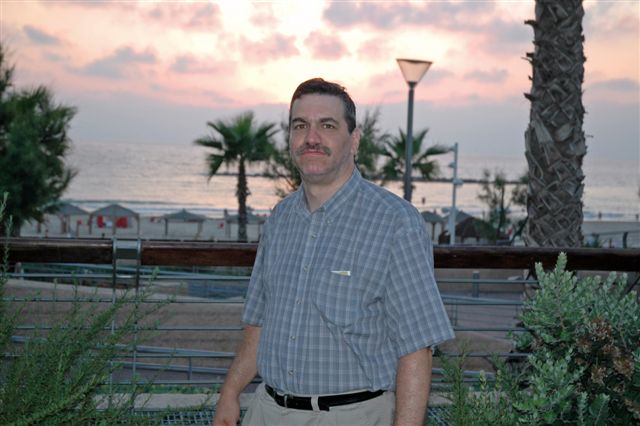This piece also appeared in the December edition of Temple Topics, continuing my message of past present and future being interconnected, in this case through the history of the development of the holiday itself...
Chanukkah – 1 Spelling, On Time, Same as Ever (?)
First Candle – Wednesday evening, December 1
As I noted in my column, Chanukkah is a rather unique holiday on our calendar for many reasons. It is likely true that no other holiday has been as intentionally manipulated throughout Jewish history, to reflect the times in which it has been celebrated. No Hebrew word that has passed into English is more routinely spelled with variant spellings, despite a clearly correct choice which apparently no style book prefers. No holiday has grown so much in significance in our modern times, nor is more connected to the celebrations of other religions and cultures, usually to the detriment of understanding its own intrinsic messages.
In other words, there may not be a Jewish holiday in which past, present, and future are all “in play” at the same time as is usually true in our Chanukkah celebration.
In its origins, Chanukkah seems clearly to have been one of many military/political holidays declared by the Maccabees during their battles with the Syrian/Greek hellenizers of Antiochus IV, and afterwards, during and after the continuing skirmishes for political and spiritual control of the Jewish community, that ended in the establishment of the Hasmonean Dynasty by the last of Judah’s brothers. For whatever reasons, all of the other of these Maccabean/ Hasmonean holidays eventually disappeared from the calendar; Chanukkah alone survived.
In that survival are the seeds of the holiday’s chameleon –like ability to change to blend into the times. The Rabbis of early times, finding it impossible to completely wipe out any trace of a popular holiday that fell at a time of year when there was nothing else to celebrate, and when a celebratory distraction was a welcome break from the psychological disorder we now call SADD (seasonal affective dysfunctional disorder) in the darkness of the depths of winter, found a way to co-opt the celebration and turn it into a religious celebration of God’s miraculous and salvational powers.
And now, in our modern world, Chanukkah, once deliberately underplayed to avoid angering the Romans because of its overtones of military victory, has become deliberately OVERPLAYED as our alternative and response to being otherwise left out of the orgy of commercialization that the Christmas season has been allowed to become. I am still not sure why we, as Jews, couldn’t “just say no” to that over-commercialization, which I believe has needlessly watered down our neighbors’ holiday. But I do not mind this added attention to and value in Chanukkah otherwise. It is long overdue.
And, at its heart, the holiday really has not changed. It is still about miraculous salvation – whether of our people through the leadership of the Maccabees against all odds in fighting the Greek armies, or through the oil that lasted for 8 days instead of one which kept our faith alive in a dark moment. It is about how we identify ourselves as Jews in the face of the larger world, and how we walk the tightrope between separation to maintain our distinctiveness and blending into the surrounding world.
It is about FAMILY celebration – with foods fried to remind of the Rabbi’s miracle of the oil, with songs and games (like dreidel – itself a late addition to the long history) designed to keep the entire story well rehearsed in the hearts and minds of the next generation, with generous sharing of gifts, and thoughts turned to helping others.
It is a mirror – of who we are today, in light of who we have been, who we might yet become, who we are to ourselves and to others.
Your Postal Service (and Tax Dollars) at Work?
14 years ago
.jpg)
.jpg)
No comments:
Post a Comment